Floppy Disk Fever. The Curious Afterlives of a Flexible Medium explores the curious afterlives of the floppy disk in the twenty-very first century by interviewing those people involved with the medium nowadays. It was edited by artist, musician and researcher Niek Hilkmann and graphic designer and researcher Thomas Walskaar. Released by Onomatopee.
Like several persons, I had assumed that the practice of storing info inside a smaller-ish beige or black plastic sq. was very long useless. I vaguely remember a time when they ended up glued to tech magazines but which is about it. Floppy Disk Fever, however, demonstrates that the presence of the out of date medium in modern day tradition is ensured by a surprisingly significant local community of fanatics, amateurs, artists and academics.
The book opens with an essay about the possible hazards and effective opportunities of nostalgia. Its creator is Lori Emerson, an Associate Professor in the English Division and Director of the Intermedia Arts, Creating, and Efficiency Program at the College of Colorado at Boulder as nicely as the Founding Director of the Media Archaeology Lab. That is the final time you are going to browse from a lady in Floppy Disk Fever. The editors of the e book acknowledge that floppy disk fans occur from several backgrounds but that the large bulk of them are adult males from Europe and the US. It was as a result complicated to replicate the total spectrum of humanity in a publication devoted to floppy fervour.
Even though there is a gentleman-cave vibe in these interviews, they are not about nostalgia, retro kitsch and ageing geekery. They are also about the up to date entire world and the dematerialisation of most of our interactions with computing.
Floppies waiting to be shipped to consumers of Floppydisk.com. Impression by using Teknofilo
Niek Hilkmann, the most important editor of the book, organises floppy-centred events as aspect of the Floppy Totaal festival in Rotterdam. That is the place he to start with obtained in get hold of with many of the folks interviewed in this guide. They are museum founders, archivists, artists, teachers and amateurs and Hilkmann will get them to speak about the present-day use and inventive repurposing of the object.
The a few most interesting interviews for me are the types with Tom Persky, Florian Cramer and Adam Frankiewicz.
Tom Persky, the founder of floppydisk.com, a company focused to promoting and recycling floppies, discusses the worries of running his organization in the 2020s. That is in which i learnt that some clinical products nonetheless necessitates floppies to perform.
Florian Cramer, a investigate professor at the Willem de Kooning Academy and Piet Zwart Institute, has been building steps of intense compression in order to squeeze entire movies onto the 1.44 MB of floppy disks considering that 2009. In the interview, he talks about his curiosity in working with constraints and why his get the job done with floppies shatters the fantasy that digital technological know-how is virtual and dematerialised.
Adam Frankiewicz is a theatre director and electronic new music composer who established an unbiased report label Pionierska Information in 2014 which publishes songs completely on floppy disks.
Other floppy fans incorporate Clint Basinger who generates information with out of date tech on the Lazy Game Critique YouTube channel Nick Gentry who works by using floppies and other obsolete media as raw content for artwork Foone Turing, a media collector and hacker who curated an exhibition on floppies at the Personal computer History Museum in Fountain See Jason Curtis, a writer, librarian and collector who established the Museum of Out of date Media in 2006 Bart van den Akker, the founder of the House Computer Museum Jason Scott, archivist at Net Archive, filmmaker, performer and historian of tech.
They chat about their marriage with the demoscene and with retro culture, the disappearance of actual physical media, producing money from obsolete tech, likely as a result of the inconvenience of combining previous and new tech, the appeal of “failed” formats, the interplay about aged and new, on-line and offline, media archaeology, their great importance as cultural artefacts, etcetera.
Studying the interviews didn’t switch me into a floppy aficionado but i could see the position of longing for a time when you could manipulate technological know-how and see how it worked.
P.S.: I found 2 phrases in the reserve and wanting at them online sucked me into a vortex of intriguing stories and anecdotes. The first a person is Sneakernet, the transfer of electronic information by bodily moving media (this sort of as floppy disks or USB flash drives) relatively than transmitting it in excess of a personal computer community. The next is skeuomorphs, a derivative item that retains ornamental structure cues from their real-planet counterparts. The trash bin icon on your computer system, for example.

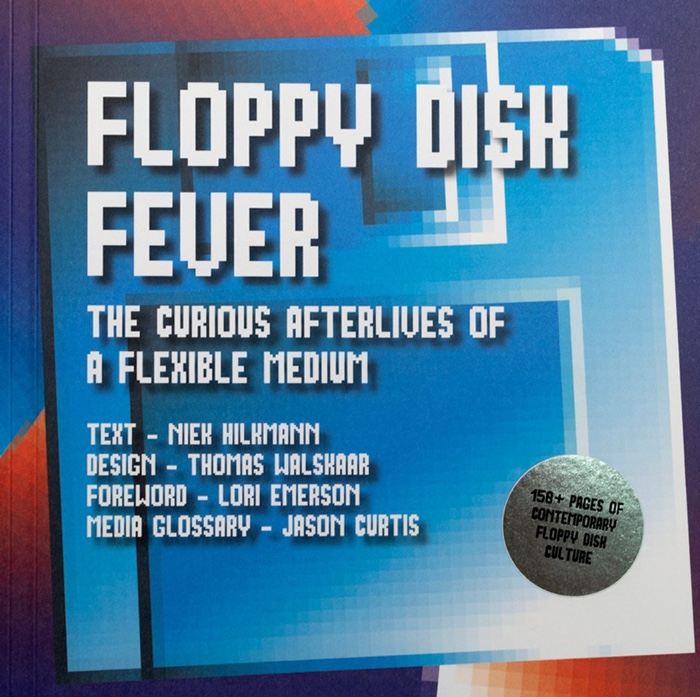
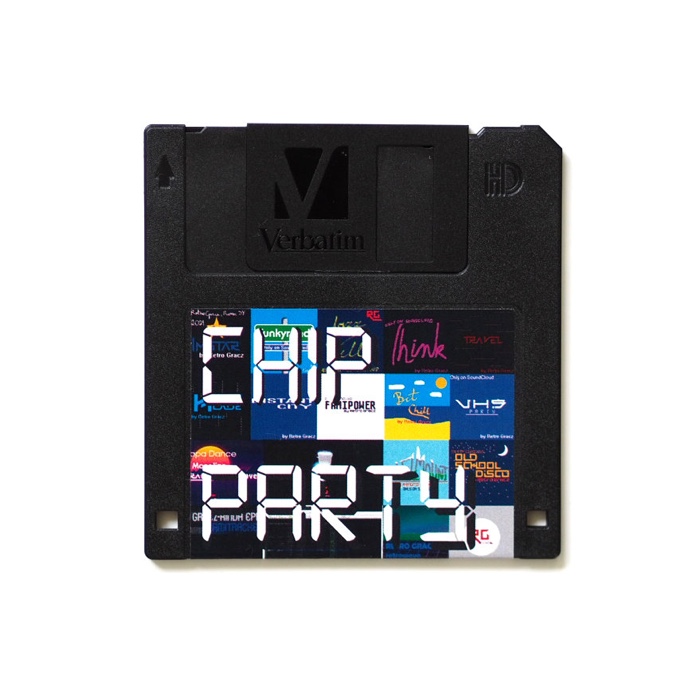
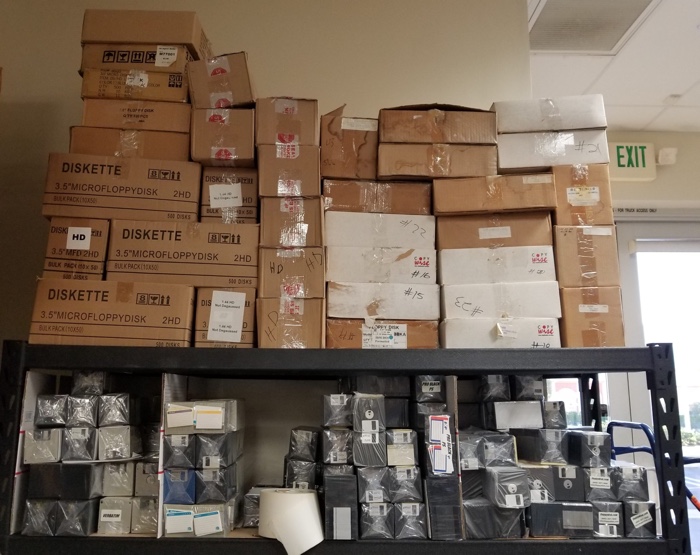
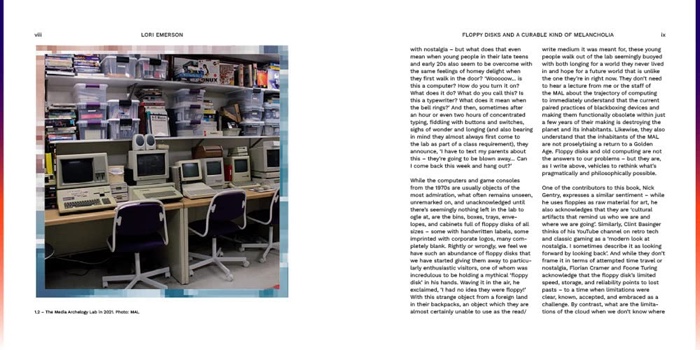
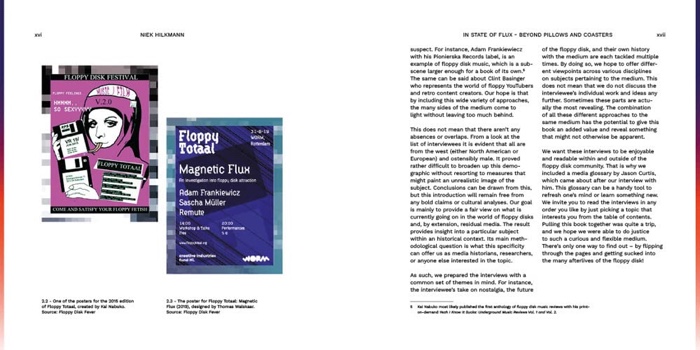

:strip_icc()/BHG_PTSN19720-33d9cd22f6ab49e6a21982e451321898.jpg)

More Stories
BSA Film Friday: 11.25.22 | Brooklyn Street Art
FEATURES – Art in VR with Casey Koyczan
Julie Karpodini: Painting Instinct – Jackson’s Art Blog